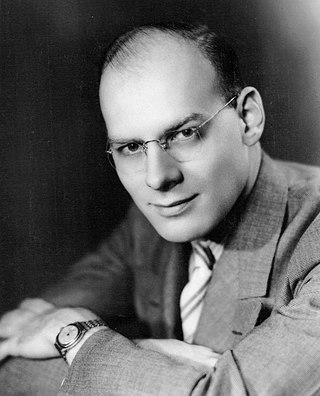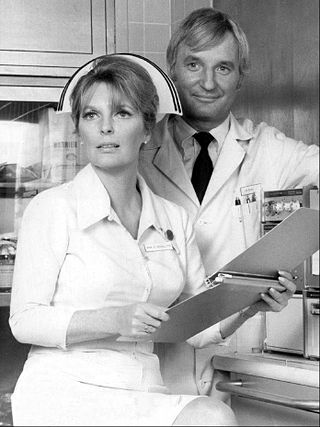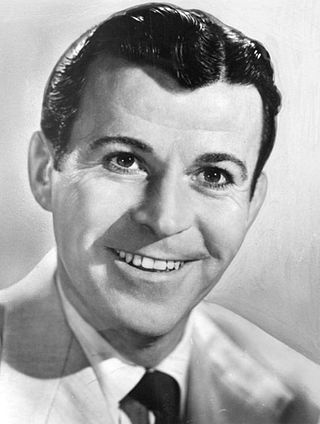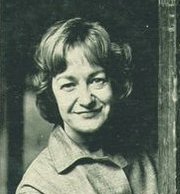Related Research Articles

Have Gun – Will Travel is an American Western television series that was produced and originally broadcast by CBS on both television and radio from 1957 through 1963. The television version of the series starring Richard Boone was rated number three or number four in the Nielsen ratings every year of its first four seasons.

Mitchell William Miller was an American choral conductor, record producer, record-industry executive, and professional oboist. He was involved in almost all aspects of the industry, particularly as a conductor and artists and repertoire (A&R) man. Miller was one of the most influential people in American popular music during the 1950s and early 1960s, both as the head of A&R at Columbia Records and as a best-selling recording artist with an NBC television series, Sing Along with Mitch. A graduate of the Eastman School of Music of the University of Rochester in the early 1930s, Miller began his musical career as a player of the oboe and English horn, making numerous highly regarded classical and popular recordings.
John Alfred Mandel was an American composer and arranger of popular songs, film music and jazz. The musicians he worked with include Count Basie, Frank Sinatra, Peggy Lee, Anita O'Day, Barbra Streisand, Tony Bennett, Diane Schuur and Shirley Horn. He won five Grammy Awards, from 17 nominations; his first nomination was for his debut film score for the multi-nominated 1958 film I Want to Live!

Robert William Troup Jr. was an American actor, jazz pianist, singer, and songwriter. He wrote the song "Route 66" and acted in the role of Dr. Joe Early with his wife Julie London in the television program Emergency! in the 1970s.

Margrethe Blossom Dearie was an American jazz singer and pianist. She had a recognizably light and girlish voice. Dearie performed regular engagements in London and New York City over many years and collaborated with many musicians, including Johnny Mercer, Miles Davis, Jack Segal, Johnny Mandel, Duncan Lamont, Bob Dorough, Dave Frishberg, and Jay Berliner.

"One for My Baby (and One More for the Road)" is a song written by Harold Arlen and Johnny Mercer for the movie musical The Sky's the Limit (1943) and first performed in the film by Fred Astaire.

Dennis Day was an American actor, comedian and singer. He was of Irish descent.

Pete Candoli was an American jazz trumpeter. He played with the big bands of Woody Herman and Stan Kenton and worked in the studios of the recording and television industries.

Isla Cameron was a Scottish-born, English-raised actress and singer. AllMusic noted that "Cameron was one of a quartet of key figures in England's postwar folk song revival – and to give a measure of her importance, the other three were Ewan MacColl, A. L. Lloyd, and Alan Lomax". She was a respected and popular folk music performer through the 1950s and early 60s as well as appearing in several films; she focused almost exclusively on her acting career from 1966 onwards. Cameron provided the singing voice for actress Julie Christie's part in the hit 1967 film version of Thomas Hardy's Far From the Madding Crowd, but changed career direction and became a film researcher in the early 1970s before her early death in a domestic accident in 1980. One of the traditional songs in her repertoire, "Blackwaterside", recorded by Cameron in 1962, was subsequently popularised by notable "next generation" U.K. folk music performers Anne Briggs, Bert Jansch and Sandy Denny.
George Duning was an American musician and film composer. He was born in Richmond, Indiana, and educated in Cincinnati, Ohio, at the Cincinnati Conservatory of Music, where his mentor was Mario Castelnuovo-Tedesco.
"Rawhide" is a Western song written by Ned Washington (lyrics) and composed by Dimitri Tiomkin in 1958. It was originally recorded by Frankie Laine. The song was used as the theme to Rawhide, a western television series that ran on CBS from 1959 to 1965. Members of the Western Writers of America chose it as one of the Top 100 Western songs of all time.
"Let's Call the Whole Thing Off" is a song written by George Gershwin and Ira Gershwin for the 1937 film Shall We Dance, where it was introduced by Fred Astaire and Ginger Rogers as part of a celebrated dance duet on roller skates. The sheet music has the tempo marking of "Brightly". The song was ranked No. 34 on AFI's 100 Years...100 Songs.

John Michael O'Keefe was an Australian rock and roll singer whose career began in the early 1950s. A pioneer of Rock music in Australia, his hits include "Wild One" (1958), "Shout!" and "She's My Baby". In his twenty-year career, O'Keefe released over fifty singles, 50 EPs and 100 albums. O'Keefe was also a radio and television entertainer and presenter.

"The Ballad of Boot Hill" is a 1959 song written by Carl Perkins which was recorded by Johnny Cash on Columbia Records.
Patrick O'Hagan Sings was an Australian television series starring the Irish tenor of the same name. It was produced by station ATN-7 in November 1958, and began being broadcast in early 1959. Unlike most Australian-produced series of the era, which were live, Patrick O'Hagan Sings was produced directly on film, with a total of 26 episodes made, each of which was designed to fit in a quarter-hour time-slot. Patrick O'Hagan sang songs in the series.
TV Channell was an early Australian television that aired live on Sydney station ABN-2 from 15 November 1956 to around 11 April 1957, airing on Thursdays, and starred Douglas Channell. It was replaced on ABN's schedule by The Johnny Gredula Show. Gredula had appeared previously on an episode of TV Channell.
The Johnny Gredula Show was an Australian television variety series which aired from 18 April 1957 to 20 February 1958 on ABC. Produced in Sydney, the series also aired in Melbourne via kinescope recordings. Regulars included the Noel Gilmore Quintet and Margaret Day.

The Crescents were a vocal harmony group which formed in Sydney, Australia in late 1958 under the name The 4 Tops. The Crescents were best known for their Top 10 hit "Mr. Blue" and for their tours with Lee Gordon's "Big Shows" supporting Johnnie Ray, Fabian, and Ricky Nelson.

"Pardon Miss Westcott" is a 1959 Australian TV play by the Seven Network as part of drama anthology series Shell Presents. It was a musical set in colonial Australia and was broadcast live. It was Australia's first television musical comedy. "Pardon Miss Westcott" aired on 12 December 1959 in Sydney and on 19 December 1959 in Melbourne.
Charles Alphonsus Sherrard (1924-1993) was an Irish-Australian tenor singer better known by the stage name Patrick O'Hagan. Born in Derry, Northern Ireland, he immigrated to Australia where he found success singing traditional Irish and Celtic songs. He moved back to Ireland, settling in Drogheda in County Louth, where he ran a pub before he decided to return to Australia. In the late 1950s and early 1960s, he starred in the Australian television series Patrick O'Hagan Sings. His artistic career spanned two decades in the 1950s and 1960s, with a comeback in the mid-1970s.
References
- ↑ Marshall, Valda (6 December 1959). "A Sinatra from Budapest". The Sydney Morning Herald . p. 120. Retrieved 29 May 2022.